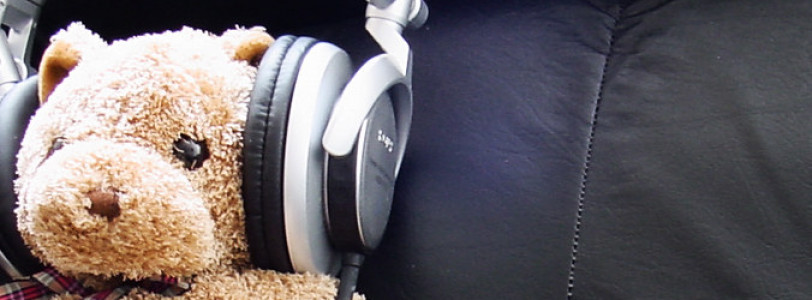THIS ARTICLE CONTAINS SENSITIVE CONTENT: including reference to harassment, sexual harassment and assault, and suicide.
Bullying goes to the very core of the music industry. It’s a big claim, one that I thought about very carefully before deciding to out and say, but I think it’s a justified one; be it from what I’ve heard from people across all manner of fields in many different genres of music, to what I have personally seen and experienced in my own field, bullying has been ever-present.
Anti-bullying week is often associated with the school playground, but it also tries to highlight bullying in all its forms and in all its manifestations, and I wish to do the same.
The arts are a field in which bullying can easily emerge. Emotions run very high, and people are personally invested in their work to an extent perhaps not as keenly felt as in other fields because they feel that this work says something integral to themselves – to who they are. It’s also, tragically, a very unstable industry to be part of. Artists have to constantly worry about how they are going to make ends meet; art is an incredibly competitive field, and competitiveness with the stakes as high as one’s own livelihood can lead to a particular kind of viciousness towards one’s competitors.
Now, I’m a classical musician. This has not been an easy article to write, an experience I’m sure is shared by many publishing this week. Bullying was something I had to confront for all of my teenage years, in one form or another. Whilst today I find myself fortunate enough to be part of a group of people and in an institution where I have seldom had to experience such treatment, even now I experience the spectre of a kind of bullying that has become normalised. I see the effects it has on others even more frequently, since now I know what I’m looking at: I know the signs through bitter experience. I write this not only to expose what I believe are the various ways in which bullying exists within artistic industries, but also to tell you, reader, that if this is something you relate to, if you see something of your own story written down here through another person’s eyes, that you are far from alone.
From the conservatoire to the ensemble, the schoolroom to individual lessons with a teacher, bullying within music — at least as I have seen and experienced it — comes in three forms.
Bullying from authority
“Authority” is a strange term. It conjures up images of law enforcement or teachers (or, if like me you’re obsessed with BBC’s depiction of His Dark Materials, maybe even The Authority). In reality, it could describe anyone or any group of people who hold some kind of power over someone else, whether that be because they have been granted power by some means or simply have seniority over someone.
In the classical music world, it is fairly easy to come up with examples of people in positions of authority: conductors, section leaders, teachers. Often these people are genuinely great leaders and do a good job in guiding the people they are leading. It is, however, a position of power that is very easy to turn into a tool to attack people.
According to the Anti-Bullying Alliance’s definition of bullying, a power-imbalance is a key factor in what constitutes bullying, and this is one of the more explicit ways that such a power imbalance can present itself. Saskia’s recent article goes more in-depth on the definition and common general manifestations of bullying. The ways that such behaviour can manifest is in many ways similar to how such abuse of authority can be seen in many industries, even outside of the arts. People can be repeatedly targeted or embarrassed by the person in front of their colleagues, be verbally abused, be made to question their worth or their ability at their job. This manifests in a number of ways in the music world, many of which I have personally experienced or borne witness to. From teachers targeting vague, unhelpful criticism against a single student or accusing them of something they simply didn’t do, to section leaders throwing their weight around when running their sections.
It is a sad truth that bullying from teachers is a worryingly under-explored aspect of the problem of bullying, and the same kind of behaviour that professionals have documented when it comes to bullying from teachers can be seen in the orchestral world. Stories abound of conductors abusing members of the orchestra, and the accounts show just how normalised it has become. Arthur C Brooks used an example of a brow-beating conductor in his piece on why society seems to celebrate the power of the bully, and the accusations against famous conductor Daniel Barenboim seem all too familiar to me personally from my experience with other conductors.
I’ve seen male conductors make repeated inappropriate remarks towards female members of the orchestra, single out a single person or sometimes a whole section who they then persistently deride and mock over the span of weeks or even years, demote members within their sections as a part of a targeted campaign of discrediting someone or belittling their ability, or sometimes go the more direct route of just screaming at individuals for some perceived slight.
The most shocking bit? All these are experiences I remember from my time in youth ensembles (although I can recall most of these examples within adult ensembles too).
There, of course, the power balance is even more extreme. A young musician is taught to idolise their accomplished elders. The manipulation of this power dynamic is easy for those who wish to abuse it. We’ve already seen the horrifying ways that such abuse can be taken to its extremes in the child-abuse cases around Chethams, Purcell, and several conservatoires, the investigations into which are still, in many cases, ongoing.
The other problem when dealing with bullying coming from a position of power is the issue that it will so seldom be reported because of the potential repercussions for the abused. No amount of assurances of confidentiality will get past the fact that the music world is a very small one, and very tight-knit. As Soyeong Park, a young professional violinist, put it in an interview for The Atlantic:
“You hear all these stories about directors [or producers] telling their director friends, Oh, she was a horrible actress to work with; don’t work with her if [an actress] refuses their advances. And then that actress’s career is over. If [the conductor doesn’t] like someone, they get cut. And [the conductor] can act like it was an artistic choice.”
This is the Sword of Damocles that hangs over every young musician who tries to speak out about this kind of institutionalised bullying. It is a threat that I was acutely aware of when I was suffering the worst of my own experiences in my teenage years; a threat that even writing this I feel the shadow of. But why?
Well of course there are many self-interested ways a person in a position of power might want to abuse that power: feelings of control, personal gratification, helping people they care about. Such abuses are commonplace in all walks of life. I feel like one of the ways this becomes unique in a musician’s world is the idea that power and professionalism are conflated, and that’s a problem with the whole music world.
Musicians idolise the great conductors of the past (and present), despite many accounts of them being abusive to their musicians, and only now are musicians beginning to be able to speak up. There is such an ingrained idea that the genius conductor dishes out tough love out of some great artistic design that even an exaggerated case like Fletcher from Whiplash begins to look — to the indoctrinated — like a problematic genius rather than an abuser. On the flipside, to a conductor then, it can become easy to begin to think that this is just the way professional conductors behave and, more insidiously perhaps, that if you don’t behave this way you will never make it to the big podiums.
Of course, people in power further down the hierarchy — the section principles and tutors — have exactly the same conundrum, expounded upon by being under the same pressure to perform from the people higher up the chain that the musicians are under. What’s worse: a tutor or section leader is someone who really knows your instrument and, thus the criticism cuts deeper. They can also make you more thoroughly question your own worth as a musician because, surely, they know what they’re talking about, where a conductor could be internally dismissed as simply not knowing your instrument well enough to understand why you did this or that.
Bullying from Peers
Bullying from your fellow musicians obviously takes slightly different forms than that of people from positions of power. This kind of bullying, in many ways, is more comparable to the bullying you might have had the misfortune to suffer in the playground, and often is caused for similar reasons, the biggest I’d posit is insecurity.
As I just established in the previous section, the classical music world is a highly competitive one. There is certainly such a thing as healthy competition, but when people’s hopes, futures and careers are on the line, that competition can get incredibly personal and often nasty. The issue is compounded by the simple economic reality that the numbers of people who take up particular instruments does not necessarily correlate to the number of players needed for that instrument. A good example is between the violin section and my own instrument: the flute.
According to this article, the violin is the 3rd most popular instrument in the US (preceded by guitar and piano) and flute is the 6th. Look at an orchestra though and you encounter a problem: there are roughly 20 violins in an average orchestra, and usually only 2 or 3 flutes. There is something of an in-joke that flutes are the bitchy section of the orchestra, which in no doubt comes from a fair measure of sexism — seeing as the flute is overwhelmingly female-coded, especially among children — but I imagine also comes from this idea that competition amongst flautists is especially fierce because of how few positions there are in an orchestra. (A common joke asks “How many flautists to change a light bulb” to which the answer is “One to change the bulb, one to kick the ladder out from under them, and three to complain how much better they’d have done it”).
As to how this abuse from other musicians manifests, frequently it involves the kind of back-talking, social exclusion and other forms of personal abuse common in peer-to-peer bullying. Where it differs is that such verbal abuse often involves making aspersions about someone’s ability as a musician. As mentioned above, a musician can consider their proficiency as a performer as an integral part of their identity – making an attack against their musical ability just as cutting as many of the cruel words exchanged across a playground. Younger musicians often are nowhere near as sensitive to how intrinsic this musical identity is (especially to themselves). But — like all bullies — when seeing their words take purchase will pursue it relentlessly as an opening to harass their target; the youth orchestra and the junior conservatoire can be places where this kind of abuse is at its worst.
Of course “peers” doesn’t just mean other musicians. Whilst I’ve had my share of most of the kinds of bullying I’ve highlighted thus far, some of the most harmful to myself personally was abuse I received from non-musical classmates at school because I was a musician. Much of this was a matter of masculinity, or my perceived lack thereof. Not only was music a girl’s subject, I also played a girl’s instrument. I was a sickly kid, especially around my early teens, and complications from appendicitis barred me from playing contact sports for a number of years, so there were no grand testosterone-fuelled displays of manliness happening on the football pitch or rugby field either.
The countless hours spent in the practise room, and weekends and after-schools spent on rehearsals meant that to many I was a bizarre shut-in, completely oblivious and external to the world as they understood it. I was socially alienated, verbally abused, perpetually harassed and mocked, and sometimes just simply beaten up. I retain the scar on my forehead from being thrown into the side of a skip, blacking out for 15 minutes, before coming round alone, picking myself up, and limping to the school nurse.
To my male classmates, I was an effeminate, closeted, wimpy geek who lacked any team spirit. Not that this necessarily endeared me to the girls either, who largely treated my perceived lack of manliness with equal if not greater derision or — to what to me felt worse — pity.
This is just one school-experience of being a musician in an environment that neither understands nor accepts you, but I know it is one experienced by many, and to some can become crushing. I know of at least one young musician, not far off my own age at the time, who found the cyberbullying they were facing at school to be insurmountable, taking their own life in their early teens.I
Bullying from Within
Honestly, I still think the worst offender for bullying in music is ourselves, and I’d love to think I had subverted your expectations somehow by leaving this until the end, but the truth of the matter is I think it’s mostly common knowledge at this point, at least if the many academic studies and articles on the topic are anything to go by. I think the place where it is not acknowledged as much is among musicians themselves, in no small part due to a hefty amount of denial, no doubt.
One of the biggest players here is the idea of perfectionism. Often hand-waved as a healthy pursuit of excellence (which it can be), perfectionism can, for many, become an obsession around which a performer can construct much of their identity; any perceived imperfection becomes not so much a critique purely of their performance but of their musical being, and thus the self-imposed pressure to pursue that concept of perfection can be enormous. Of course, music being an art, what exactly constitutes “perfection” and if it can even exist are some of the most problematic issues out there. So you have a whole profession full of people striving for a concept of perfection that is woolly at best and completely unattainable at worst. The frustration that many must feel from that suddenly becomes very easy to rationalise. This article on self-reported perfectionist motivators in conservatoire students is a great place to look into this.
The obsession for perfection in many cases will also come from an obsession to achieve “success”, in whatever form that might come to an individual. Success can be seen from a pursuit of accolades, competition victories, or simply a desire to attain a high level of proficiency on an instrument, or it could be seen from a more materialistic desire to earn well from music. The former lends itself to falling foul of perfectionism, the latter to overcompetitiveness.
The motive for this behaviour is perhaps the simplest yet fuzziest of the drives behind bullying mentioned here: we just think that’s how things are. Not only the music world but also depictions of the music world as presented by books and Hollywood all present a brutal, hyper-competitive music scene where only the most brutal and the most dedicated — to the point of self-abuse — will ever make a name for themselves.
So I’ve highlighted the three ways in which bullying manifests in the music world, and the various reasons why it occurs. But what to do about it? After all, this is anti-bullying week, so how do we de-bully music? Structural, and attitude changes.
Structural changes need to come in the form of de-stratifying the music world. To an extent there will always been a student-teacher dynamic in music, so there will always be ways in which hierarchy will be present (and none of this is to say that all hierarchies are always bad after all), but there are many ways – especially in ensembles – that music can be more democratised. Conductors are definitely valuable (and I’m not trying to put them out of a job!) but many ensembles have shown how arbitrary the pedestaled nature of the conductor is, such as the Orpheus Chamber Orchestra in New York which operates without a designated leader or conductor, but by a set of elected leaders and rotating core members (a good account of the history of conductorless orchestras is outlined in this wiki article). This isn’t to say that conductorless orchestras are the way to go, only that the image of the conductor as king of the ensemble is an arbitrary one: another common insider saying is that a professional orchestra will know if a guest conductor is good or not by the first few bars; if they’re no good, the orchestra just ignores them and follows the principal violin instead. By spreading the power across the collective, the opportunities for bullying from power-abusers decreases.
Attitudes I think are the biggest problem though, and fortunately are the thing we have the most control over. When we see films like The Choir, La La Land, and of course Whiplash, and we see the media glorify the hopeless struggles of troubled artists against an uncaring, unfeeling world in a cutthroat and corrupt music industry, we need to not just take that as the lot of the romantic archetype tortured artist. We need to stop fetishising the way musicians are constantly beaten down both from within and outside their industry. We need to see these depictions of the artistic world not as an unapologetically honest depiction of the way things are, or romanticised versions of artists finding meaning out of their torment, but as a warning, a wake-up call. We need to start seeing the way musicians are abused in these stories and when we relate to them not to feel catharsis, but anger. We need to show that the strong reaction of pathos we have with these artists is due to a core problem within the music industry itself.
When we start doing that, maybe the kinds of abuses that happen within the real world will start looking more stark. When we see our downtrodden colleagues walking away disheartened from the rehearsal room we might start to ask why this art that we love is causing us so much grief. When we start seeing that, maybe we can spur the kind systemic changes needed to make music a more wholesome profession, and where bullying no longer has a safe place.
"I love my music !" by shankar, shiv is licensed under CC BY 2.0











Wow, this is a really powerful piece! I really appreciated how much you opened yourself up here and completely subverted the expectations of an anti-bullying piece by presenting a strikingly honest perspective. I also learned more about the music industry, thank you.